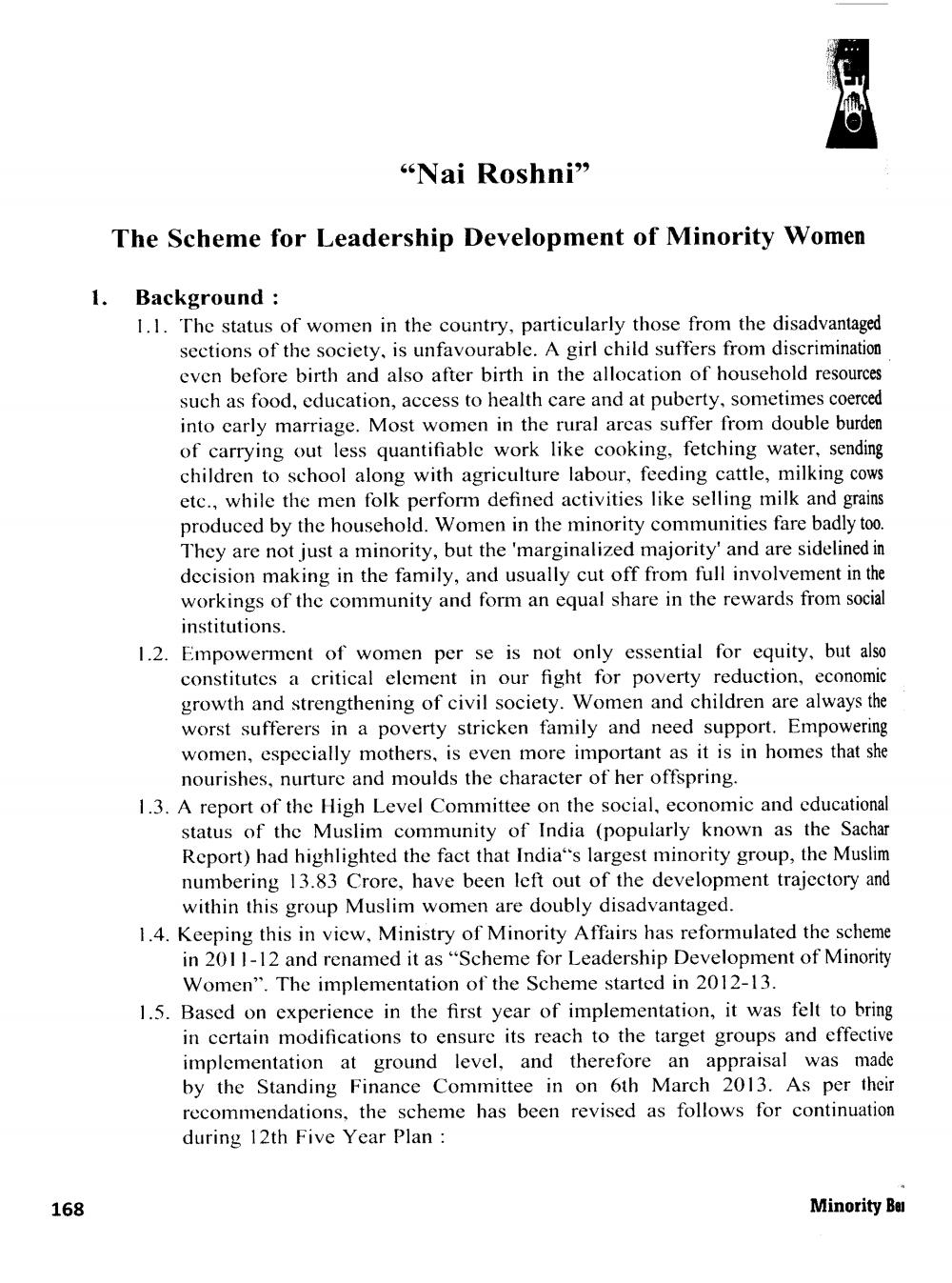________________
“Nai Roshni”
The Scheme for Leadership Development of Minority Women
Background: 1.1. The status of women in the country, particularly those from the disadvantaged
sections of the society, is unfavourable. A girl child suffers from discrimination even before birth and also after birth in the allocation of household resources such as food, education, access to health care and at puberty, sometimes coerced into carly marriage. Most women in the rural areas suffer from double burden of carrying out less quantifiable work like cooking, fetching water, sending children to school along with agriculture labour, feeding cattle, milking cows etc., while the men folk perform defined activities like selling milk and grains produced by the household. Women in the minority communities fare badly too. They are not just a minority, but the 'marginalized majority' and are sidelined in decision making in the family, and usually cut off from full involvement in the workings of the community and form an equal share in the rewards from social
institutions. 1.2. Empowerment of women per se is not only essential for equity, but also
constitutes a critical element in our fight for poverty reduction, economic growth and strengthening of civil society. Women and children are always the worst sufferers in a poverty stricken family and need support. Empowering women, especially mothers, is even more important as it is in homes that she
nourishes, nurture and moulds the character of her offspring. 1.3. A report of the High Level Committee on the social, economic and educational
status of the Muslim community of India (popularly known as the Sachar Report) had highlighted the fact that India's largest minority group, the Muslim numbering 13.83 Crore, have been left out of the development trajectory and
within this group Muslim women are doubly disadvantaged. 1.4. Keeping this in view, Ministry of Minority Affairs has reformulated the scheme
in 2011-12 and renamed it as "Scheme for Leadership Development of Minority
Women". The implementation of the Scheme started in 2012-13. 1.5. Based on experience in the first year of implementation, it was felt to bring
in certain modifications to ensure its reach to the target groups and effective implementation at ground level, and therefore an appraisal was made by the Standing Finance Committee in on 6th March 2013. As per their recommendations, the scheme has been revised as follows for continuation during 12th Five Year Plan :
168
Minority Be




